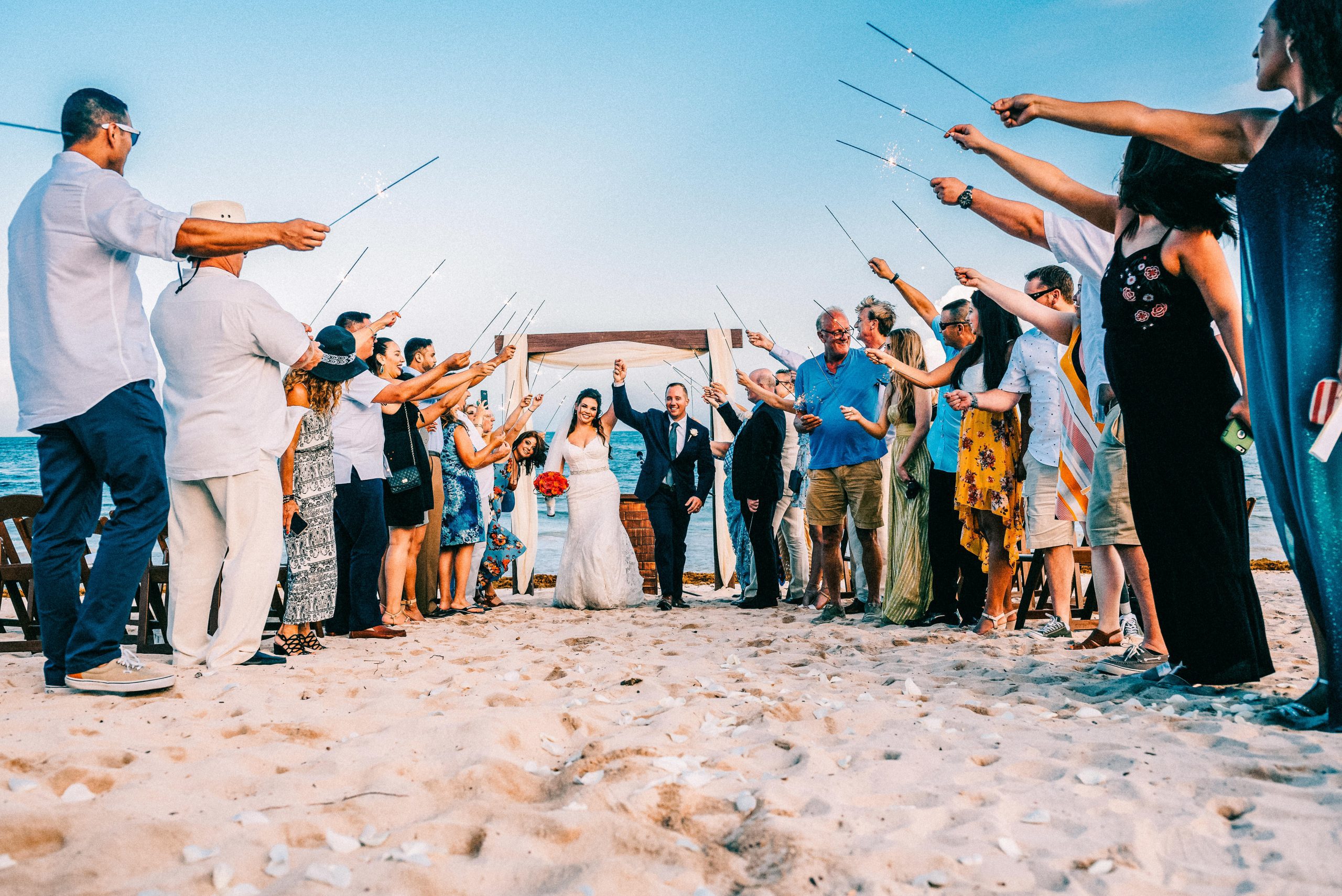Planning a wedding can feel overwhelming, but with our well-structured checklist, you can reduce stress and ensure that no detail is overlooked. Whether you’re just starting or well into your journey, this checklist will be your trusted companion.
With a clear timeline, you’ll have a roadmap to follow, ensuring that every task is completed at the right moment. Our checklist will help you stay on track, even if your engagement period is shorter than average.
Let’s start planning your dream wedding together!
Setting a Timeline
The ideal length of an engagement is 12 to 14 months, but every couple’s timeline is different. Planning a wedding involves many details and tasks, so it’s important to establish a timeline to keep everything organized and on track. By following a wedding checklist timeline, you can ensure that you have enough time to complete all the necessary preparations.
To create your personalized wedding timeline checklist, start by listing all the major tasks you need to accomplish before your wedding day. Break down these tasks into monthly, weekly, and daily to-do lists, allowing yourself enough time to complete each one.
Having a clear timeline will not only help you stay organized, but it will also provide you with a sense of progress and accomplishment as you check off each task on your wedding checklist timeline.

Benefits of a Wedding Timeline Checklist
- Keeps you organized and on track with your wedding planning
- Ensures you have ample time to complete all necessary tasks
- Reduces stress by breaking down the planning process into manageable steps
- Helps you prioritize tasks and allocate resources effectively
- Allows for adjustments and flexibility as needed throughout the planning process
By setting a clear timeline for your wedding planning journey, you can enjoy a stress-free and organized experience. With each task completed according to your wedding checklist timeline, you’ll be one step closer to your dream wedding day.
Establishing a Budget
Before we dive into the exciting details of wedding planning, you need to establish a budget that will guide your spending decisions and ensure you stay on track. Taking the time to figure out your budget and identify your priorities will set the foundation for the rest of your planning process.
To get started, sit down with your partner and discuss who will be contributing to the wedding expenses. Consider both sides of the family, as well as any personal contributions you and your partner plan to make. Once you have a clear understanding of who will be paying for what, it’s time to break down your budget.
Creating a detailed spreadsheet is an effective way to track your spending and make adjustments as needed. Start by listing all the wedding-related expenses you anticipate, such as venue, catering, photography, floral arrangements, and attire. Assign a budget to each category, prioritizing the elements that are most important to you.
Remember to allocate a portion of your budget for unexpected expenses or last-minute changes. It’s always better to have a cushion than to be caught off guard by unexpected fees.
Throughout the planning process, regularly refer back to your budget spreadsheet to keep an eye on your spending and make any necessary adjustments. Consider reevaluating your priorities if you find yourself exceeding your initial budget. Remember, your wedding should be a reflection of your love and commitment, not an added financial burden.
- Create a detailed budget spreadsheet with all anticipated wedding expenses.
- Assign a budget to each category, prioritizing your must-haves.
- Allocate a portion of your budget for unexpected expenses.
- Regularly track your spending and make adjustments as necessary.
Creating a Guest List
When planning your wedding, one of the first tasks on your wedding day checklist should be creating a guest list. Determining the number of guests you can invite will directly impact your budget and the size of the venue you’ll need. To get started, consider your budget and the capacity of your chosen venue.
If you and your partner are financing the wedding yourselves, a common guideline is to allocate 70% of the guest list to your side and 30% to both sets of parents. However, if your parents are also contributing financially, it’s fair to divide the guest list evenly among all parties involved.
Factors to Consider
- Available budget
- Venue capacity
- Your preferences on the size of the wedding
- Family and close friends
Making these decisions early on will help you create a guest list that fits within your wedding preparation checklist and ensures a memorable celebration surrounded by loved ones.

Hiring a Wedding Planner
Planning a wedding can be challenging, but it doesn’t have to be. That’s where a wedding planner can come in handy. Hiring a professional to guide you through the process can alleviate stress and ensure that everything runs smoothly on your big day.
A wedding planner can provide valuable expertise and industry knowledge. They are well-versed in the latest trends, have connections with vendors, and can help you create a cohesive vision for your wedding. They can also help you stay within your budget by recommending cost-effective alternatives.
When it comes to selecting a venue, a wedding planner can assist you in finding the perfect location that fits your style and budget. They will handle the venue searching and negotiations, making the process easier and more efficient.
Managing your budget is another crucial aspect of wedding planning, and a wedding planner can help you keep track of expenses and make sure you are allocating funds appropriately. They can also provide guidance on where to invest your money to create the most impact.
Wedding logistics can be complex, from arranging transportation to organizing the timeline of events. A wedding planner will take care of these details, ensuring that everything is in place and running smoothly throughout the day.
Ultimately, hiring a wedding planner allows you to enjoy the planning process and focus on the joyous moments leading up to your wedding day. They will take care of the logistics, leaving you more time to spend with your loved ones and make lasting memories.
Choosing a Venue
First, explore your options. Research and compile a list of potential venues that align with your vision and budget. Use our wedding checklist template to keep track of important details and notes for each venue.
Once you have your list, it’s time to start visiting the venues in person. Schedule appointments and take a tour of each location. Pay attention to the atmosphere, layout, and amenities offered. Visualize how your wedding will look in each space and consider how it will accommodate your guest count.
As you visit each venue, ask questions about availability, pricing, and any additional services they offer. Take note of the overall responsiveness and professionalism of the venue staff.
Finally, make your decision. Consider all the factors that are important to you, such as location, style, and budget. Trust your instincts and choose the venue that feels right for you and your partner.
Insurance and Legalities
When it comes to your wedding, it’s important to take steps to protect yourself from any unforeseen circumstances. One way to do this is by considering wedding insurance. Wedding insurance can provide coverage for various aspects of your big day, such as cancellations, damages, and liability.
Why Get Wedding Insurance?
Wedding insurance can give you peace of mind knowing that you’re financially protected in case things don’t go as planned. Whether it’s a vendor canceling at the last minute or a weather-related incident, having insurance can help alleviate some of the stress that comes with planning a wedding.
Before purchasing wedding insurance, make sure to carefully review the coverage options and understand what is included. Consider factors such as the cost of the policy, the coverage limits, and any additional coverage that may be necessary for your specific wedding needs.
Marriage License and Legal Documents
Another important aspect of wedding planning is taking care of the legal requirements. Applying for a marriage license is a crucial step that needs to be done in advance. Research the specific requirements in your state and make sure to gather all the necessary documents.
It’s important to start this process early, as obtaining a marriage license can sometimes take time due to paperwork and processing. Be sure to check the expiration date of the marriage license as well, as it may vary depending on your location.
In addition to the marriage license, there may be other legal documents required for your wedding, such as contracts with vendors, permits for outdoor venues, or releases for photography and videography. Take the time to review and complete all necessary legal documents to ensure a smooth and worry-free wedding day.

Selecting Your Wedding Photographer
Determine your preferred photography style – be it traditional, candid, fine art, or edgy. Knowing what style speaks to you helps in narrowing down potential photographers.
Research and Budget
Explore online portfolios and reviews, and consider recommendations from friends. Set a clear budget, understanding that costs encompass the photographer’s time, skill, and potential deliverables. Shortlist photographers within your budget and style preferences and arrange interviews. It’s essential to connect with them personally, as they’ll be a significant presence on your wedding day.
Communicate Expectations
Request to see full wedding albums to gauge consistency and how they capture various moments of the day. This provides a clearer picture than selected highlights. Discuss your must-have shots, event duration, and any specific requests. Understanding their approach and confirming they can meet your expectations is key. Read the contract thoroughly, focusing on copyright, cancellation policies, and payment details. Clarify any uncertainties immediately.
Ultimately, choose a photographer who makes you comfortable and whose work excites you. They should understand your vision and be capable of bringing it to life.
Food and Beverage
Deciding on the menu and beverage options for your wedding reception is an exciting part of the planning process. This is where you can get creative and provide your guests with an unforgettable culinary experience. Whether you choose to hire a caterer or utilize the venue’s in-house catering services, make sure to consider a diverse range of flavors and dishes.
Menu Selection
- Start by discussing your preferences with the caterer or venue’s catering manager.
- Consider the season, theme, and dietary restrictions of your guests.
- Create a menu that highlights your favorite cuisine and includes a variety of appetizers, main courses, and desserts.
- Offer options for both vegetarian and non-vegetarian guests.
- Consider incorporating local and seasonal ingredients to add a unique touch to your menu.
Beverage Options
- Choose a selection of both alcoholic and non-alcoholic beverages to cater to all of your guests’ preferences.
- Create a signature cocktail that represents you and your partner.
- Offer a variety of wines, beers, and spirits that pair well with the menu.
- Provide non-alcoholic alternatives such as mocktails, soft drinks, and infused water.
Remember to coordinate with your venue or caterer regarding any specific policies or regulations they may have regarding outside food and beverages. By carefully selecting your wedding reception menu and beverage options, you can ensure that your guests have a delightful culinary experience that complements the overall ambiance of your special day.

Design and Decor
Gathering inspiration and creating a cohesive design for your wedding decor is an exciting part of the planning process. It’s a chance to infuse your personal style and preferences into every detail of your special day. To help you bring your vision to life, follow these steps:
Gather Inspiration
Start by browsing wedding magazines, websites, and social media platforms to gather inspiration for your decor. Save images of styles, colors, and themes that resonate with you. Consider creating a digital or physical inspiration board to keep all your ideas organized.
Select a Color Palette
Choosing the right color palette is crucial for achieving a harmonious and visually stunning look. Think about the overall mood and atmosphere you want to create. Do you lean towards soft and romantic hues, or bold and vibrant tones? Once you’ve decided, select a primary color and a few complementary shades to create your palette.
Create a Mood Board
Compile all your inspiration images, color palette, and other key elements onto a mood board. This will help you visualize how everything will come together. Include photos of floral arrangements, table settings, lighting ideas, and any other decor elements you plan to incorporate. Aim for a cohesive look that reflects your personality and wedding theme.
Choose Decor Items
With your inspiration, color palette, and mood board in hand, it’s time to select the actual decor items. Consider elements such as table linens, centerpieces, signage, lighting, and furniture. Make a checklist of all the decor items you’ll need, and start sourcing them from vendors or rental companies. Don’t forget to keep your budget in mind as you make your selections.
Personalize Your Decor
Add personal touches to your decor that reflect you and your partner’s story. Incorporate elements like family heirlooms, favorite quotes, or hobbies that you both enjoy. These small details will make your wedding decor unique and memorable.
By following these steps, you’ll be well on your way to creating a beautifully designed wedding that perfectly reflects your style and love story.
Conclusion
Planning a wedding can be a complex and overwhelming task. However, with the help of a well-structured checklist, you can make the process more manageable and enjoyable.
By breaking down the planning process into smaller steps and following a timeline, you can reduce stress and ensure that everything is on track. From setting a timeline and establishing a budget to creating a guest list and choosing a venue, each task is crucial to creating your dream wedding.
Hopefully, with this wedding checklist as your guide, you can confidently plan your dream wedding and create memories that will last a lifetime. Happy planning!
- Wedding Checklist for Your Big Day - February 19, 2024
- Wedding Reception on the Beach in Punta Cana - February 9, 2024
- Trash the Dress Photoshoot During Your Wedding Ceremony - January 29, 2024

